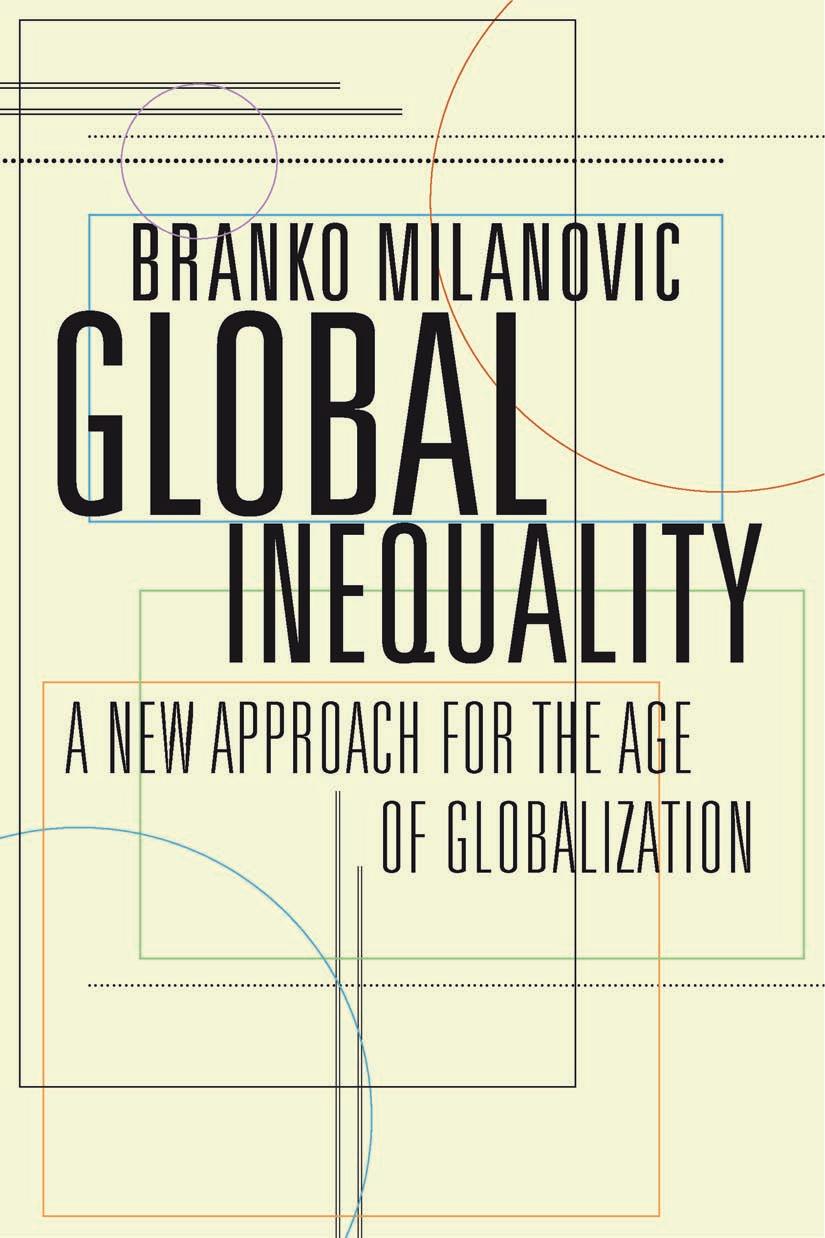Global Inequality: A New Approach for the Age of Globalization by Branko Milanovic

Author:Branko Milanovic [Milanovic, Branko]
Language: eng
Format: epub, pdf
ISBN: 9780674737136
Publisher: Harvard University Press
Published: 2016-04-10T22:00:00+00:00
This list does not include any events centered in Latin America and Africa. This omission reflects the fact that in recorded world history these two continents, probably because of their distance from centers of civilization in the Mediterranean, India, China, and the North Atlantic, have never played an important autonomous role. But that itself may change in the coming decades, with the rising importance of Brazil, Nigeria, and South Africa.
The third mistake, an exaggerated focus on key players, is perhaps the only one we could avoid, but doing so remains difficult. We tend to simplify the world by focusing on what happens in the key countries that seem to shape the evolution of things to come. It is not surprising that the United States figures prominently in the literature I have reviewed here, as it probably does in all similar literature over the past seventy years. The United States is always contrasted with another country that, at a given point in time, represents its antipode or seems to be its chief competitor. The literature of the 1960s portrayed the world in terms of the communist-capitalist rivalry or convergence. Then, as the importance of the USSR dwindled and that of Japan increased, two different capitalisms came face to face: American and Japanese (with German capitalism playing a somewhat subsidiary role). China has now totally eclipsed other competitors, so much so that today’s books—and this one is no exception—tend to be structured around that antinomy.
The approach of zooming in on several key countries is justifiable to the extent that powerful countries, through their example and soft power (and hard power, at times), and also through their position at the forefront of technological progress, have a preponderant effect on how the rest of the world evolves. Big countries are also important in purely arithmetic terms because their populations and economies are so large. But this approach essentially regards one-half or two-thirds of the world as mostly passive, which is unlikely to be true. Events in small countries sometimes have disproportionate political and economic repercussions, be it the Sarajevo assassination in 1914, the military coup in Afghanistan in 1973, or the 2014 crisis in Ukraine. Moreover, from a global or cosmopolitan perspective, the experiences of people in all parts of the world are just as important as the experiences of people living in key nation-states.
The reader should keep in mind the fundamental problems with our attempts to see into the future. Although we may be aware of these problems, and possibly of a few more, awareness of them alone is not sufficient to allow us to devise an alternative approach to avoid the mistakes that others have made. In the rest of this chapter I will try to avoid some of these pitfalls, but I am aware that if this book is read twenty years from now (that is, in the mid-2030s) many of its forecasts may be found wanting no less than the ones that I found wanting in the earlier literature.
Download
Global Inequality: A New Approach for the Age of Globalization by Branko Milanovic.pdf
This site does not store any files on its server. We only index and link to content provided by other sites. Please contact the content providers to delete copyright contents if any and email us, we'll remove relevant links or contents immediately.
International Integration of the Brazilian Economy by Elias C. Grivoyannis(111059)
The Radium Girls by Kate Moore(12028)
Turbulence by E. J. Noyes(8050)
Nudge - Improving Decisions about Health, Wealth, and Happiness by Thaler Sunstein(7707)
The Black Swan by Nassim Nicholas Taleb(7129)
Rich Dad Poor Dad by Robert T. Kiyosaki(6633)
Pioneering Portfolio Management by David F. Swensen(6301)
Man-made Catastrophes and Risk Information Concealment by Dmitry Chernov & Didier Sornette(6019)
Zero to One by Peter Thiel(5802)
Secrecy World by Jake Bernstein(4753)
Millionaire: The Philanderer, Gambler, and Duelist Who Invented Modern Finance by Janet Gleeson(4478)
The Age of Surveillance Capitalism by Shoshana Zuboff(4293)
Skin in the Game by Nassim Nicholas Taleb(4250)
The Money Culture by Michael Lewis(4207)
Bullshit Jobs by David Graeber(4190)
Skin in the Game: Hidden Asymmetries in Daily Life by Nassim Nicholas Taleb(4007)
The Dhandho Investor by Mohnish Pabrai(3765)
The Wisdom of Finance by Mihir Desai(3748)
Blockchain Basics by Daniel Drescher(3583)
